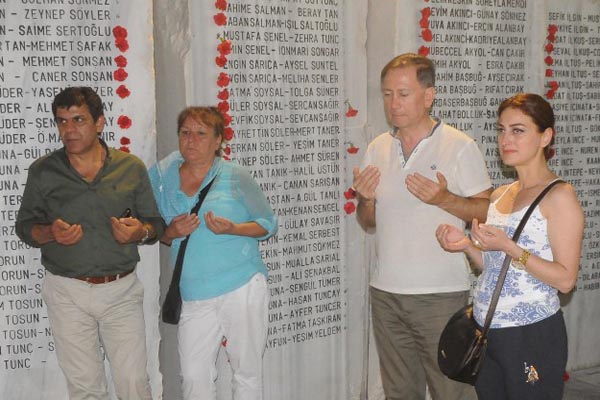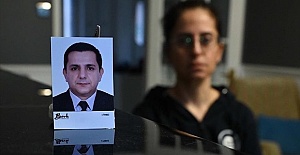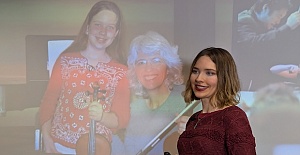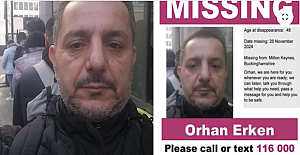“I still sometimes feel shaking but there is no quake,” 50-year-old Necdet Demir says as he recalls the devastating earthquake that hit northwestern Turkey in 1999. On August 17, a magnitude-7.4 tremor hit the industrialized town of Izmit, leaving 18,000 people dead in Turkey. Less than 100 km away, Istanbul was also badly affected by the quake. The Avcilar district on the European side of the city suffered the brunt of the quake. Dozens of buildings collapsed and a total of 206 people were killed in the district, according to Avcilar municipality. Necdet Demir, together with his wife and his two children, had moved to an apartment in the district just two months prior to the devastating earthquake. “We were sleeping when the quake occurred,” he remembers. “Before we could wake up, our building was razed to the ground. We were all trapped under the wreckage for around 15 minutes.” His wife was first to be pulled from the wreckage. Necdet followed. Once the rescue workers managed to bring their son out, he was already dead. Their life fell apart. “Since that day, I just can’t get over the trauma. It is impossible to forget," he says.
Bulent Ozkan, 45, a jeweler, was more fortunate as he suffered no loss of family because they had gone on a trip outside of the region. But the jeweler remained.
“As it was very hot, I couldn’t sleep well at that night,” says Ozkan. “I was awake before the quake happened. Then I felt my bed shaking and I thought it would finish in a short time.”
He didn't even have time to get out of bed because the five-story building had already collapsed.
“I thought I had died for a while but once I realized I was able to breathe, I tried to move through the wreckage,” he says. “I found some space and got out of the wreckage. I don't remember anything else.”
The rescue workers experienced the quake differently. They could not focus on their families, their relatives, their neighbors. They had to deal with the job at hand: rescuing all the people calling for help.
"You need to deal with everything and everyone. That's what people at the site expect from you. While you are taking care with one person under the wreckage, you know there are still many people waiting for help under the wreckage," said Semih Emiroglu, a rescue worker at Turkish Search and Rescue Association (AKUT), the only non-governmental organization in Turkey capable of carrying out search and rescue operations at the time.
"We cannot be emotional,” he adds. “Struggling with someone for hours but not being able to rescue him or her was very sorrowful but we couldn’t be affected."
“We don't have any right to lose our motivation, hope and power,” adds volunteer rescue worker Kenan Emek. “If we think in that way, we cannot do our job."
“There were nearly 70,000 piles of debris but only around 230 rescue workers across Turkey at that time. It was heartbreaking not to be capable of recovering all the people,” recalls Nasuh Mahruki, co-founder and president of Turkish Search and Rescue Association.
The limited number of rescue teams in Turkey in 1999 rendered the work twice as difficult, especially during the first hours when international help had not yet arrived.
“I could only sleep for 6 hours in five days,” Mahruki recalls. “We were working at full capacity to save lives but we knew it would never be enough to save everyone.”
The search and rescue organization managed to recover 220 people alive under the debris.


 After Nesil Caliskan a by-election will be held in Jubilee ward in Enfield
After Nesil Caliskan a by-election will be held in Jubilee ward in Enfield Publishing the analysis, Labour’s Cllr Ergin Erbil said Everybody in Enfield deserves basic rights
Publishing the analysis, Labour’s Cllr Ergin Erbil said Everybody in Enfield deserves basic rights Gaza-Israel conflict Statement from Cllr Ergin Erbil, Leader of Enfield Council
Gaza-Israel conflict Statement from Cllr Ergin Erbil, Leader of Enfield Council Cllr Ergin Erbil was elected as the new Leader of Enfield Council
Cllr Ergin Erbil was elected as the new Leader of Enfield Council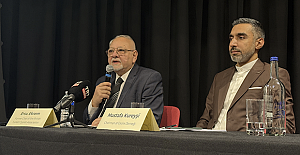 History of the Turkish Cypriot People symposium held in London
History of the Turkish Cypriot People symposium held in London Asia's most famous and powerful 100 women award given to WFPA President Naziya Bisenova
Asia's most famous and powerful 100 women award given to WFPA President Naziya Bisenova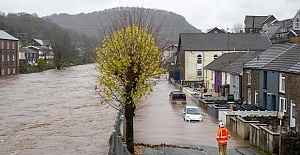 Death toll climbs to 5 as powerful Storm Bert batters Britain
Death toll climbs to 5 as powerful Storm Bert batters Britain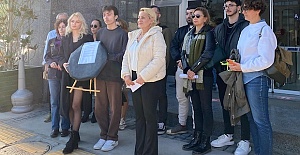 Turkish students are unable to obtain visas from the Italian Consulates
Turkish students are unable to obtain visas from the Italian Consulates Footballers are celebrating after Enfield Council officially opened a pitch
Footballers are celebrating after Enfield Council officially opened a pitch  Pep Guardiola's Manchester City beaten by Juventus
Pep Guardiola's Manchester City beaten by Juventus Chelsea to meet Arsenal in Sunday's London derby
Chelsea to meet Arsenal in Sunday's London derby Fenerbahce vs Manchester United Predicted line-ups! Jose Mourinho faces former side
Fenerbahce vs Manchester United Predicted line-ups! Jose Mourinho faces former side UK economy had zero growth between July and September
UK economy had zero growth between July and September Shape the future of housing services with The Enfield 500
Shape the future of housing services with The Enfield 500 DOUBLE-CAB PICKUPS TO BE CLASSED AS CARS UNDER NEW HMRC POLICY
DOUBLE-CAB PICKUPS TO BE CLASSED AS CARS UNDER NEW HMRC POLICY Guide to Selling Hoodies with Imprinted Book Quotes
Guide to Selling Hoodies with Imprinted Book Quotes





